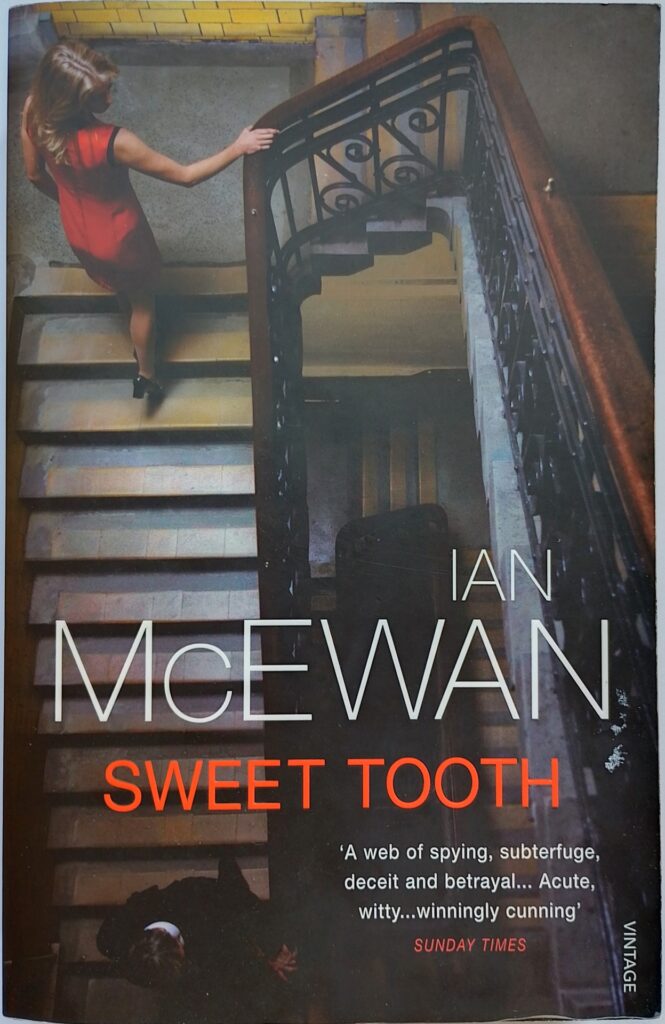First published 2012. Vintage paperback, 2013, pp 374, c.110,000 words.
The protagonist in this novel wins a place at Cambridge University to study mathematics at the urging of her mother when she would have preferred to study English at a provincial university. While at Cambridge she does a minimum of maths but reads voraciously instead. So with this novel, which is sold as a spy story, but where there is a minimum of spying and a lot of discussion of books, writing and reading. It includes at least six short stories written by the ‘target’ of the protagonist’s spying. That’s not to say it is a bad book, it is just not what it seems from the cover. McEwan is a clever chap, so this is no doubt intentional. I can see his agent or publisher saying that the writer needs to expand his market to attract more readers, so why not produce a spy story? McEwan may well have no interest in spy stories, so he adds a minimum of covering to the literary novel he really wanted to write.
The protagonist comes across as a bit of a male fantasy figure: a ‘gorgeous’ young woman, keen on sex, readily falls in love but quickly moves on when relationships sour. Again McEwan is no doubt aware of this and cleverly explains all by the end. Well almost all; a couple of plot ends are left unsatisfactorily loose.
McEwan’s writing style can come across as rather dry, academic and high-brow with a sprinkling of obscure words, but he mostly reins that in here and the prose is accessible and the pages turn quickly. While aware of our heroine’s failings, we remain rooting for her. The characters are brought to life mostly realistically, and one advantage of the limited spy stuff is that he avoids what have become clichés from Le Carré’s world. The story is set against the background of the terrible economic and political state of the UK during the 1970s, and this is evoked very well. McEwan is a master of the set-piece scene where the reader’s emotions are wound up and there is at least one here. The exemplar of this is the escaped balloon sequence in his otherwise unreadable Enduring Love.
For those who love literary stuff there are some fun and games here: references to Martin Amis and to McEwan’s own published short stories , for example.
Overall, I found this an enjoyable read, a pleasant change from the ludicrous Nutshell with its foetus with the sensibility of a sixty-year-old. It does share with that a little too much fondness for fine dining, excess alcohol consumption and Jermyn Street tailoring. Not many recent graduates of my acquaintance were interested in such things in the dark days of the 1970’s.
© William John Graham, May 2022

